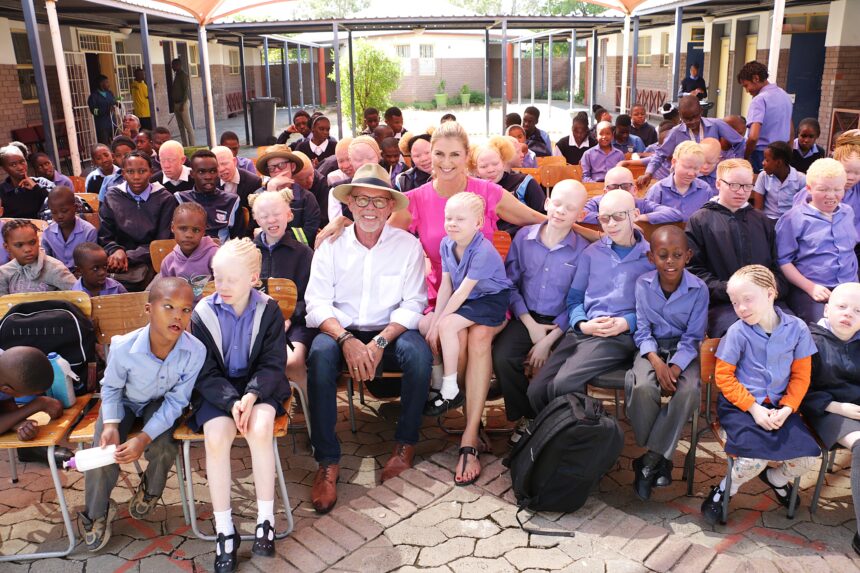Lahja Nashuuta
The Michelle McLean Children’s Foundation Trust, in collaboration with SINASRA, a local organisation supporting people with albinism, recently donated hundreds of visual devices and prescription eyeglasses to visually impaired children and those living with albinism in Windhoek.
The eyeglasses and devices were given to the School for the Visually-Impaired in Khomasdal, a government school that serves blind learners, children with albinism and students with learning disabilities. Among the devices distributed were urgentl- needed hand-held magnifying glasses and telescopic eyeglasses specifically designed for individuals with albinism.
Speaking at the donation ceremony, Michelle McLean, founder of the Michelle McLean Children’s Foundation Trust, explained that telescopic eyeglasses are designed with ultra-strong magnification, and are vital for people with albinism. A key part of providing these glasses is a diagnostic device called an “auto-refractor,” which efficiently and accurately determines the appropriate eyeglass prescription.
“There are many people who need these eyeglasses but cannot afford the magnification required, particularly for those with albinism,” McLean said. She also revealed that the foundation would soon distribute additional eyeglasses provided by Lions Club International, with the support of the Windhoek Lions Club.
“For over 100 years, Lions Club in the United States has collected, cleaned, analysed and catalogued tens of thousands of pairs of previously owned prescription eyeglasses,” she said.
Furthermore, McLean highlighted that the “Vision for the Future” project will provide customised prescription lenses to children who have had their natural lenses removed during cataract surgery but cannot afford the required lenses. The foundation is partnering with Windhoek Central Hospital and some medical doctors who will perform the surgeries.
Dr Johanna Shuuluka, a local optometrist and deputy chairperson of SINASRA, praised the donation as a beacon of hope for hundreds of children at the School for the Visually Impaired. She reiterated SINASRA’s commitment to empowering people living with albinism.
“We aim to support people with albinism by ensuring they have equal opportunities and equal standing. It’s also essential to help them see clearly. People with albinism often lack pigment in their skin, which affects their vision. Thanks to these magnifying glasses, we can ensure that everyone is well taken care of,” Dr Shuuluka said.
According to the 2023 Census and Housing Report, there are 38 000 Namibians living with albinism, with 1.3% of this population residing in rural areas and over 1.2% in urban areas.
Fillemon Eliakim, Head of Department and acting principal of the School for the Visually-Impaired, believes the donation will help level the economic playing field for people with albinism by enabling their participation in education and daily activities without hindrance.
“We are working with about 150 children who have various types of visual impairments, including albinism, from different economic backgrounds. Many of them cannot afford these devices. As a school, we are incredibly grateful for this donation,” Eliakim said.
-lnashuuta@gmail.com
Photo: Heather Erdmann



